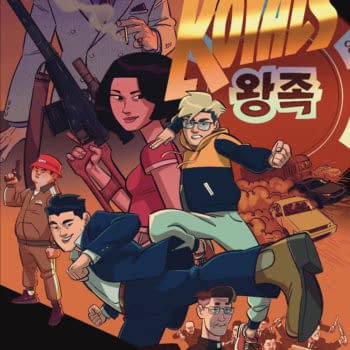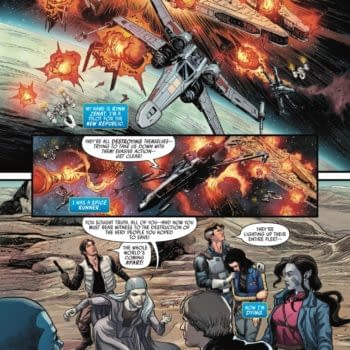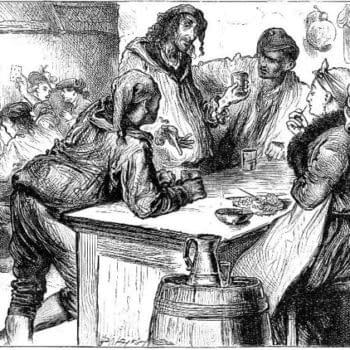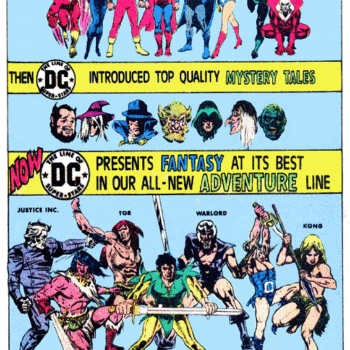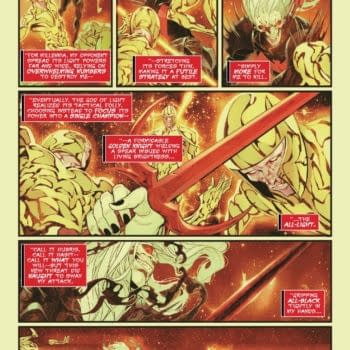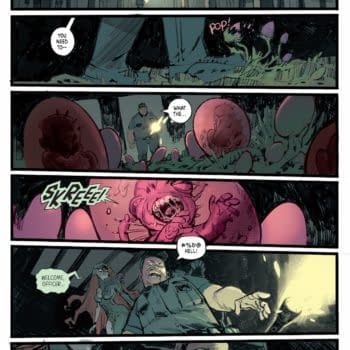Posted in: Comic Show, Comics, Recent Updates | Tagged: alex cox, Baltimore Comic Con 2013, brian wood, cbldf, comic book legal defense fund, conan, dmz, northlanders, The Massive
The Big Two Vs. Creator Owned Comics – Brian Wood at Baltimore Comic Con
In a panel Spotlight at Baltimore Comic Con hosted by Deputy Director of the Comic Book Legal Defense Fund Alex Cox, Brian Wood had a lot to say about the pros and cons of working for the Big Two versus working in creator owned comics in his career including the stability the first offers and the elements of freedom attractive in the latter. His wide-ranging career made for an excellent vantage on both, and he spoke in direct terms about what has made him such a versatile creator.

Northlanders, also with Vertigo, however, he feels is his "best writing". It was an unorthodox series for Vertigo for a number of reasons, particularly in its structuring, which didn't lend itself to numbered, collected trades. Vertigo insisted on a numbering system for the anthology series, even though it was non-sequential in format. The numbering question resulted in a "tug of war" which Wood ultimately lost, though he fought it for some time. The series was eventually cancelled due to sales, but lasted into 7 trade volumes over 50 issues. Wood immersed himself in research for the series, taking advantage of a convention in Norway to visit museums with reconstructed Viking villages and homes, and took photos which resulted in direct reference for the artist. Wood's interest in Vikings became more "adult oriented" after conceiving of the series, "looking past the stereotypes" behind Viking life.

Cox pointed out that Wood has crossed a wide field of genres so far, including Science Fiction (mixed with Horror), Fantasy, like his work on Conan, and now Star Wars. Wood commented: "I've tried to do work on a lot of different things. It keeps me on my toes, and keeps me from getting bored". The life of a comic book writer, he said, is "not the most exciting thing in the world", spending "99 percent of the time sitting alone in a room", so a variety of genres keeps the mind engaged.
Wood has actually been self-publishing for over 15 years now, though many of his early self-published works "no one will ever see", he said. These range from anthology contributions as a college student, created to use as a sample portfolio for pitches, to early concept work on Channel Zero. That forms quite a contrast to Wood's current career where he's been working heavily on licensed properties, as Cox noted. But Wood, surprisingly, said that the current run on licensed work isn't representative, and doesn't mean that he's moved away from creator-owned work. He says the imbalance is only "temporary" and as he wraps up his work on Conan, for instance, he hopes to tackle a vast "backlog of material" that will draw him back into creator-owned work.
When Cox questioned Wood about his origins in comics, Wood suggested that he wasn't exactly a stereotypical comic book fan who eventually reached pro status. A chance gifting of several bags of comics from an older cousin when he was 17 introduced him to Watchmen and books like The Dark Knight Returns, but that didn't immediately prompt the art student to consider a career in comics.
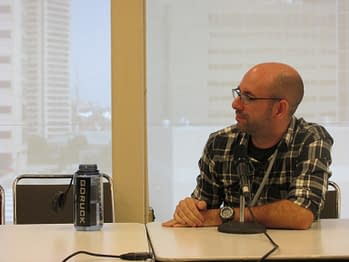
Working for the Big Two now means working as an independent agent for Wood, and creates a different dynamic where there's both more risk and more freedom to work on multiple projects, but he seemed to indicate that even within his non-exclusive state, he's headed firmly toward creator-owned work after tying up current projects. Wood is quick to point out just how unorthodox his career has been so far, but his drive to work in multiple genres may be just the thing that continues to make him an icon for creator-owned comics with their boom in genre successes right now.
Hannah Means-Shannon is senior New York Correspondent at Bleeding Cool, writes and blogs about comics for TRIP CITY and Sequart.org, and is currently working on books about Neil Gaiman and Alan Moore for Sequart. She is @hannahmenzies on Twitter and hannahmenziesblog on WordPress. Find her bio here.










